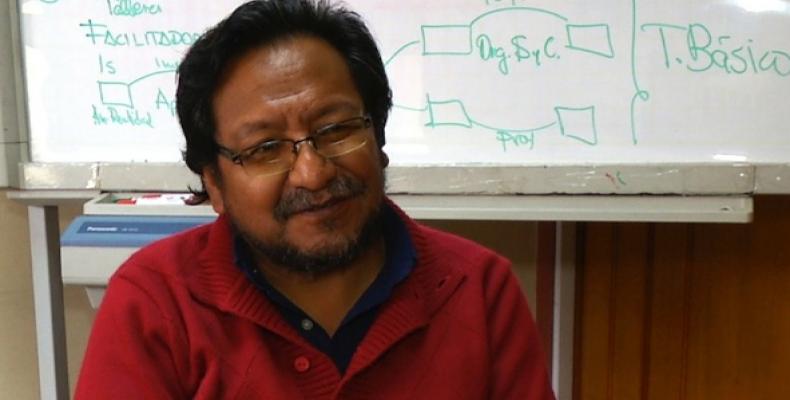La Paz, October 25 (teleSUR-RHC) –- The Bolivian government is using funds from the country’s nationalized resources and industries to fund a program, social cash transfers, targeting vulnerable segments of the population, including expecting mothers, the elderly, and public school students.
The Juancito Pinto Bono project pays public school students with high attendance, rates of 200 bolivianos (some $28,94) a year. The money might not seem like much, but for poor Bolivians who live on a few dollars a day, the money can go a long way.
Student Jaime Ruben Silpa Cruz has received the Juancito Pinto Bono since it was introduced in 2006. Now in his final year of primary school, he came to his school in El Alto to receive the payment. “For me, this is the only incentive that really reaches all of the students, since the majority of those who attend public schools don’t have economic resources. I use my money to buy books, school supplies, and save for college.”
The government says the idea of the conditioned payment is to provide a strong incentive for students not to drop out. Many Bolivian children must work to support their families, and Bolivia’s Vice Minister of Alternative and Special Education Noel Aguirre says payments have helped slash elementary school dropout rates. “One of the most important results has been the reduction in dropout rates. In 2005, before we initiated the Juancito Pinto Bono cash transfers, the primary school dropout rate was 7 percent. Seven out of every 100 students did not finish school. Today that rate has dropped to 1.5 percent,” Aguirre underlined.
The bono is named after a 12-year old Bolivian who marched to battle as a drummer in Bolivia’s 1879 War of the Pacific with Chile, where Bolivia lost its former coast on the Pacific Ocean. Killed in combat, Juancito Pinto is viewed as a national martyr in Bolivia.
The payments are made directly to the students themselves, though a legal guardian must also be present in order for the student to receive the money.
The resources for the bonos come from Bolivia’s state enterprise YPFB, in charge of managing the country’s nationalized natural gas reserves, as well as state communications company Entel and public mining enterprise Comibol.


